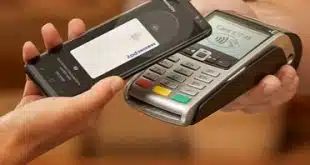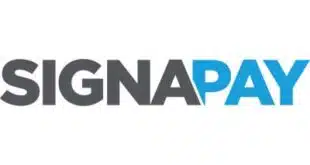There are plenty of opportunities for payments providers—if they play the game right, say Rick Oglesby and Brad Margol.
Major retailers fear business disruption from Apple Inc., Facebook Inc., and Google/Alphabet, but they are already locked in head-to-head competition with Amazon.com Inc., and Amazon is clearly winning. It has climbed to Number 3 on the Forbes Global 2000 list of the world’s largest retailers, and Wal-Mart’s Number 1 spot is within reach.
Completely outflanked by Amazon, Wal-Mart Stores Inc. is now desperately attempting to catch up through a partnership with its slightly less dangerous nemesis, Google. The implications for payments companies are significant.
More Worrisome
In the battle for consumer attention, Facebook and Google are winning. According to an Amazon survey, Google and YouTube (a Google property) rank first and second in Web traffic from U.S. consumers. Facebook is third, followed by Reddit and then Amazon.
At the same time, Amazon, Apple, and Google control the operating systems and/or devices through which consumer attention is directed. By controlling the portal through which consumers direct their attention, they can integrate the entire purchasing lifecycle, from awareness to research to decision to purchase to payment-method selection and post-purchase activity.
Wal-Mart, on the other hand, ranks a distant 35th in Web traffic, behind the likes of eBay, Netflix, LinkedIn, Craigslist, ESPN, CNN, PayPal, Yelp, and a variety of adult sites. It lacks a consumer device or operating system. It has historically thrived by offering consumers a wide selection of products at low prices, but now finds that Amazon has no problem beating those two value propositions through even greater selection, similar prices, and the convenience of near instant-delivery.
Via its acquisition of the Whole Foods chain, Amazon is further expanding its selection and distribution capabilities to include fresh groceries, the last remaining area where Wal-Mart held an advantage.
Even more worrisome for Wal-Mart is that Amazon’s Echo speaker with its Alexa voice-activated assistant now controls 70+% of the voice-activated assistant market and is growing its installed base of these devices at a rate of 130% annually. Through that device, consumers can order nearly any product from Amazon by simply stating, “Alexa, order [product name].”
Match Made in Heaven
Wal-Mart lacks the technology assets, the digital customer relationships, and the delivery logistics to go head-to-head with Amazon. What it does have is a well-recognized brand, millions of customers, many thousands of products, and a distribution network that fills store shelves around the country every day. Who can help even the competition with Amazon?
Only Google.
In 2016, Google launched Google Assistant and Google Home, a voice-activated assistant and speaker combination designed to answer challenges from Apple’s Siri and Amazon’s Alexa/Echo combination. It has also been working since 2013 to launch and expand Google Express, an Amazon Prime-like ordering and near-instant delivery service. Google Assistant and Google Express come fully integrated, enabling consumers to order from Express-participating merchants with just a few spoken words.
What Google Express lacks is product variety and a distribution network capable of delivering anything anywhere, at any time. Who can help? More than one option exists, but Wal-Mart looks like the very best candidate due to its sheer size, logistics capabilities, and national presence covering even small towns.
It looks like a match made in heaven, each contributing critical assets that the other lacks. And in August, that match became a reality. As the two companies announced, the leader in attracting digital attention will pair with the largest retailer to create a set of services designed to rival Amazon, the leader in e-commerce. It’s also likely that others will join in. Facebook or Apple could easily acquire eBay, Etsy, Square, or some other asset and launch their own solution.
Implications
As the battle expands and intensifies, there are several implications for payments:
– Both sides will aggressively promote omnichannel commerce, including ordering online for in-store pickup, ordering online for delivery, and ordering in-store for delivery. Other merchants will need competitive solutions. Merchant-service providers should be investing heavily in technology and services to manage omnichannel and cross-channel customer experiences.
– Account-on-file transactions are rapidly becoming the new normal for payment transactions, online and in-store. Merchant-service providers should be investing in digital-wallet enablement and in facilitating merchant-branded wallet offerings. Banks should be investing heavily in creating interfaces with merchants and digital-wallet providers that facilitate top-of-wallet placement of payment instruments in long-term account-on-file relationships.
– It’s clear that the payment experience is under attack. One-click checkout, voice-ordering, or other forms of ultra-convenient checkout and integrated commerce will make the payment experience all but disappear. Simultaneously, Amazon Go and competing technologies will try to do the same in-store. Banks should be investing heavily in their loyalty programs and in building direct relationships with merchants to drive their payment instruments to top-of-wallet status.
– Acquirers and gateways need to focus on the marketplace concept, enabling wallet enrollment and acceptance, enabling globalization, and enabling connected commerce and other types of digital services.
As the dogfight continues, others will copy the leadership that the biggest dogs provide. The smaller dogs will need new services to keep up, so the payment-service providers best equipped to provide them will win. For banks, building direct merchant relationships may be the key to enhancing both merchant and consumer loyalty.
—Rick Oglesby and Brad Margol are principals at AZ Payments Group, Mesa, Ariz.




